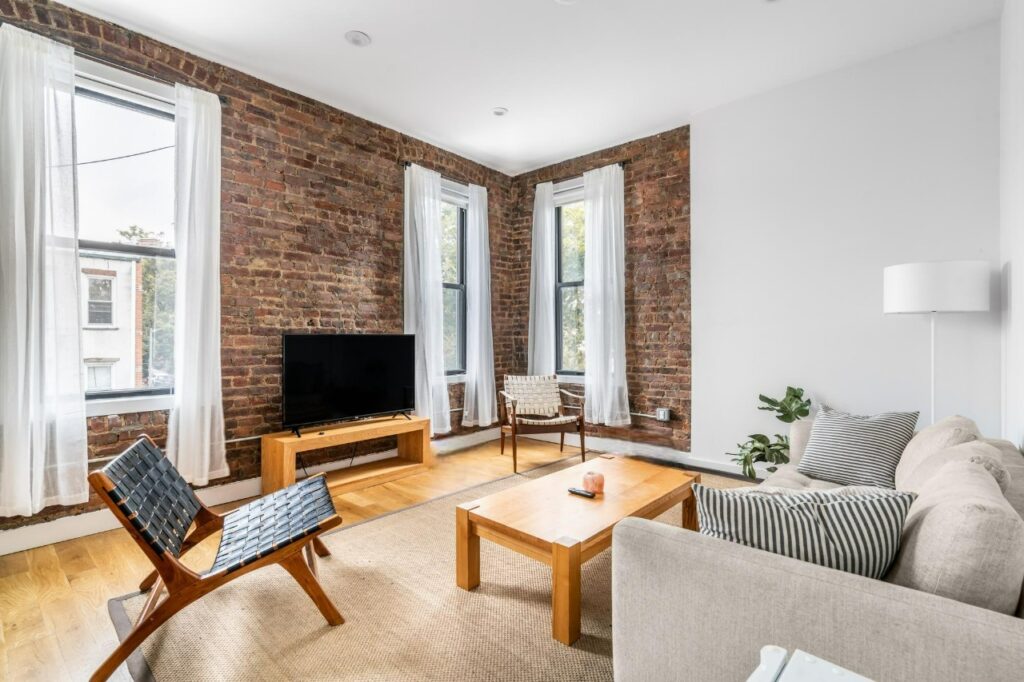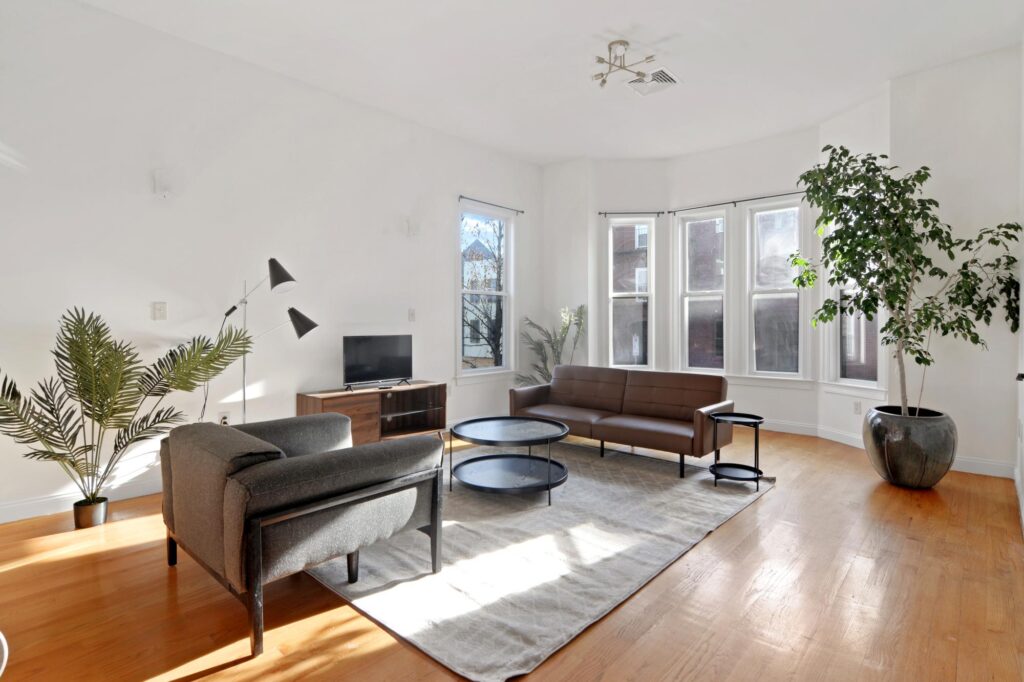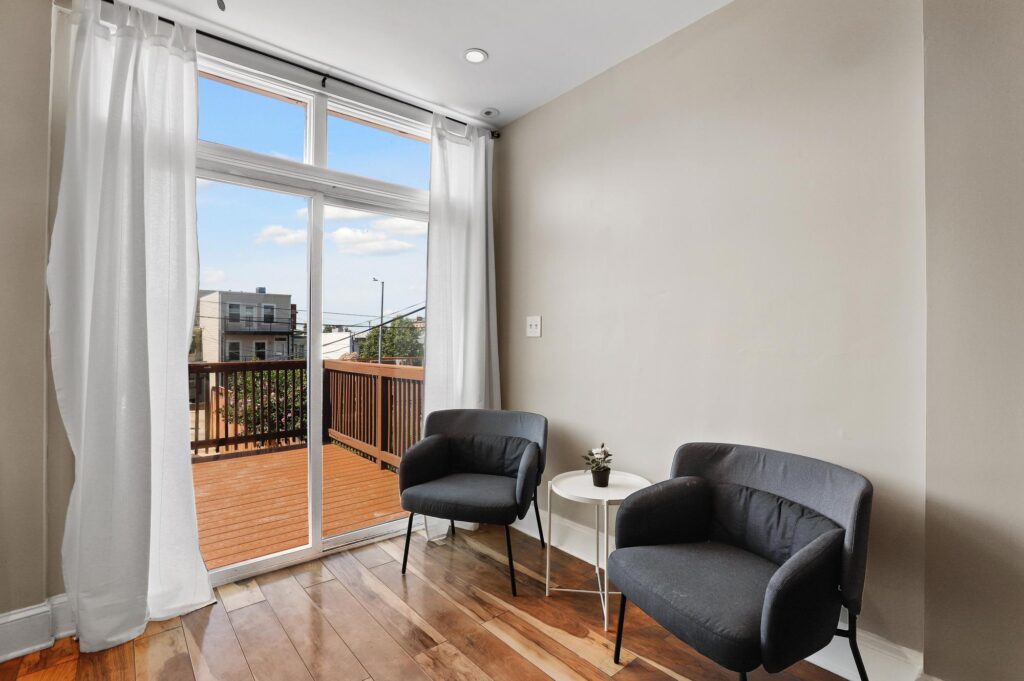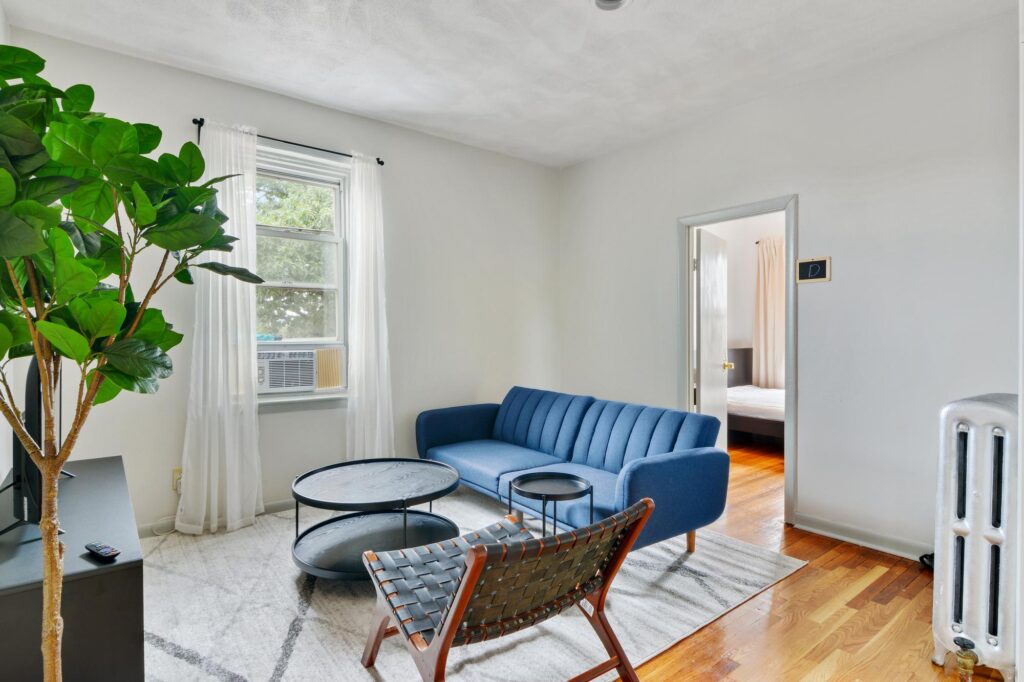Estimated reading time: 9 minutes
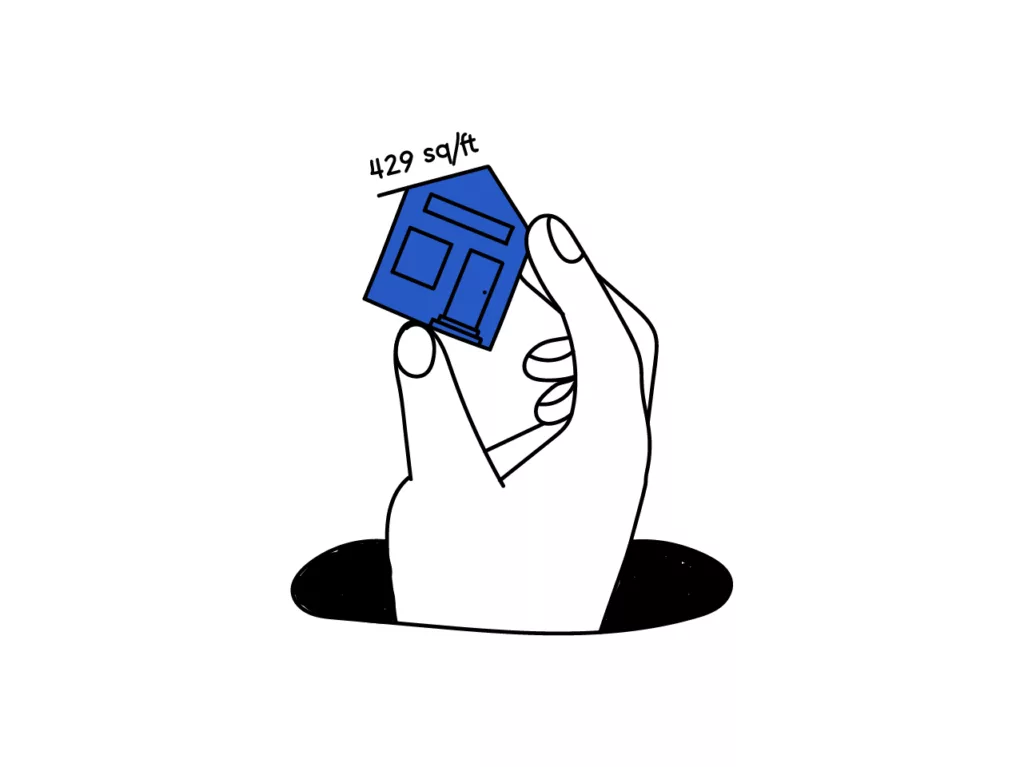
Whether you’re a renter, homeowner, or real estate investor, knowing how to calculate square feet is a handy skill to master. Properly calculating square footage can save you from making big mistakes when moving to a new apartment, renovating a home, or buying real estate. And it’s not that difficult to learn!
Square Footage Calculators:
And here is everything you need to know about how to calculate square feet.
Enjoy a hassle-free, high-end rental experience for stays of one month or longer in major US cities.

Fully-furnished rooms and apartments with flexible lease. Apply today and move in tomorrow.
What is Square Footage?
Square footage is simply a convenient way to measure the area of any surface. In homes and apartments, square footage is most commonly used to tell you how much floor space you have to work with. You might see an ad for an apartment promoting 700 square feet of usable space, for example. Or maybe you see a home listing with a 50 square foot balcony. Square feet are also used to calculate areas like wall space and counter space.
Ways to calculate square footage
There are several ways to calculate square footage, including:
- Tape Measure: This is one of the most traditional methods of measuring square footage. To calculate the square footage of a room, measure the length and width of the room using a tape measure, then multiply the two numbers together. For example, if the length of the room is 10 feet and the width is 12 feet, the square footage would be 120 square feet.
- Apps to Measure Your Apartment: There are many smartphone apps that use the camera and sensors of your device to measure distances, calculate square footage, and read a floor plan. Some popular apps include MagicPlan, RoomScan Pro, and Floor Plan Creator.
- Feet Approximation: If you don’t have a tape measure or a smartphone, you can use your feet to estimate the size of a room. The average human foot is approximately 12 inches long, so you can use your foot to measure the length and width of the room. For example, if you take 10 steps across the width of the room, and each step is approximately one foot, then the width of the room is approximately 10 feet. You can do the same for the length of the room and then multiply the two numbers together to calculate the square footage. However, this method is not as accurate as using a tape measure or a smartphone app.
Why Tenants, Homeowners, and Landlords Need to Know Square Footage
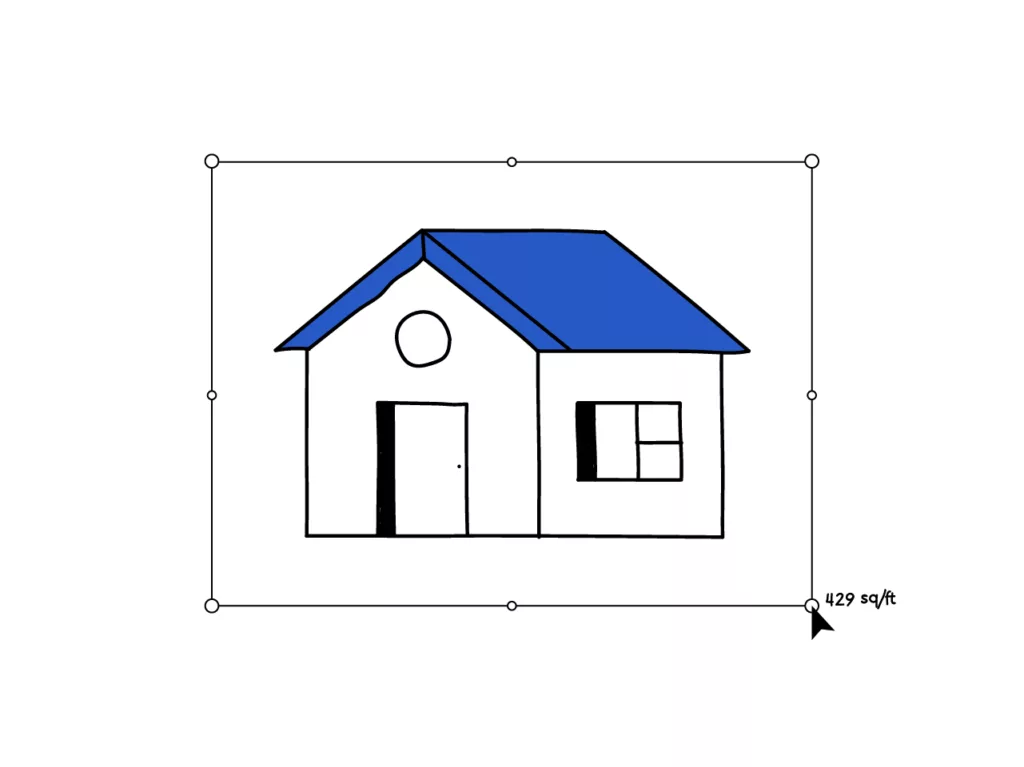
There are several reasons why tenants, homeowners, and landlords should all know how to calculate square feet:
- Knowing the square footage of a room can help you confirm if your furniture will fit.
- Knowing the square footage of a specific surface can help you estimate renovation costs. If you’re replacing a kitchen countertop, for example, you need to calculate the square footage of the countertop so you can get accurate quotes for the cost of the job.
- When you know how to calculate square feet, you can make sure you order the right amount of supplies and materials. If, for example, you plan to paint a wall that’s 12 feet long by 10 feet tall, you need to find the total square footage so you know how much paint to buy.
- Perhaps most importantly, knowing the square footage of homes and apartments helps you compare prices to find the best value. Let’s say you’re deciding between two similar apartments: Apartment A is $1,500 per month and Apartment B is $1,800 per month. Which is the better deal? Well, it depends on the square footage. If Apartment A is 500 square feet and Apartment B is 1,000 square feet, you’re getting more space for your money with Apartment B.
How to Calculate Square Footage
You can calculate the square footage of a standard-shaped room (a square or rectangle) in three easy steps:
- Measure the length of the room with a tape measure.
- Measure the width of the room.
- Multiply the length times the width.
Example: If the room is 8 feet long and 10 feet wide, the square footage of the room is 80 square feet (8 x 10 = 80).
But what if you need to measure the square footage of a whole apartment or house? No problem! You have two options:
- Option 1: Measure the length and width of the whole house and multiply them together (this works best for perfectly rectangular homes).
- Option 2: Calculate the square footage of each individual room, then add those numbers together (this works best for homes with lots of angles).
Different Units of Measurement
Using square feet is the most common unit of measurement in American real estate. But it’s not your only option. For small projects, you might want to work in square inches. For big projects, like landscaping, square yards might make more sense. And in international real estate markets, square meters are the standard for home measurements.
Whatever your unit of measurement, the formula is the same. Multiply the length times the width to calculate the area of square and rectangular surfaces. Just make sure you’re using the same unit of measurement for your length and width. If you’re looking for square feet, measure both distances in feet; if you’re looking for square meters, measure both distances in meters.
How to Calculate Square Footage of Abnormally-Shaped Rooms
Calculating the square footage of abnormally-shaped rooms requires a bit of high school geometry. Instead of a simple length-times-width, you’ll need a slightly more complicated formula.
Circular
The formula for finding the area of a circle is 𝜋r2. This means you take pi times the radius of the circle squared. So to measure the square footage of a circular space, you need to measure the widest part of the room (the diameter), divide that number in half (to get the radius), multiply the radius times itself, then multiply that by 3.1416 (pi).
Example: If the widest part of the room is 12 feet, the radius is 6 feet, so the square footage of the room is 113.1 square feet (3.1416 x 6 x 6 = 113.1).
Triangular
The formula for finding the area of a triangle is ½b h. This means you take half of the distance of the triangle’s base times the triangle’s height. So to measure the square footage of a triangular space, you need to measure the base of the room, divide that number in half, then multiply it by the distance from the base to the far corner.
Example: If the base of the room is 10 feet, and the distance from the base to the far corner is 12 feet, the square footage of the room is 60 square feet (½ x 10 x 12 = 60).
Other Odd Shapes
You can find the square footage of any odd shape using a combination of the calculations for rectangles, circles, and triangles. For example, you might have a room that would be a rectangle, if it weren’t for a triangular alcove. In that case, you can calculate the area of the rectangular part of the room, calculate the area of the triangular alcove, and add them together.
Similarly, you might have a perfectly rectangular bedroom, but there’s a square chunk of it taken up by a walk-in closet. Simply calculate the square footage of the rectangle, then calculate the square footage of the closet, and subtract the closet space from the total area.
Yes, calculating area can get tricky when you have odd shapes, but it’s well worth your time to learn how to calculate square feet. You’ll be a more informed consumer, you’ll be able to more accurately estimate costs of materials for home projects, and you’ll be able to properly compare real estate deals based on relevant price per square foot metrics.
And if you’re a business, you can use this information to make more accurate pricing estimates for projects. A tool like Joist would be perfect if you’re supplying an invoice for a client.
Find Your Ideal Home with June Homes
We can help you find the perfect rental, whether it’s a short-term rental in Boston, a furnished apartment in NYC, a room in DC or a short-term rental in Philadelphia.
Contact us today. Let us know your preferences, and we’ll guide you in selecting a home of your dreams.

